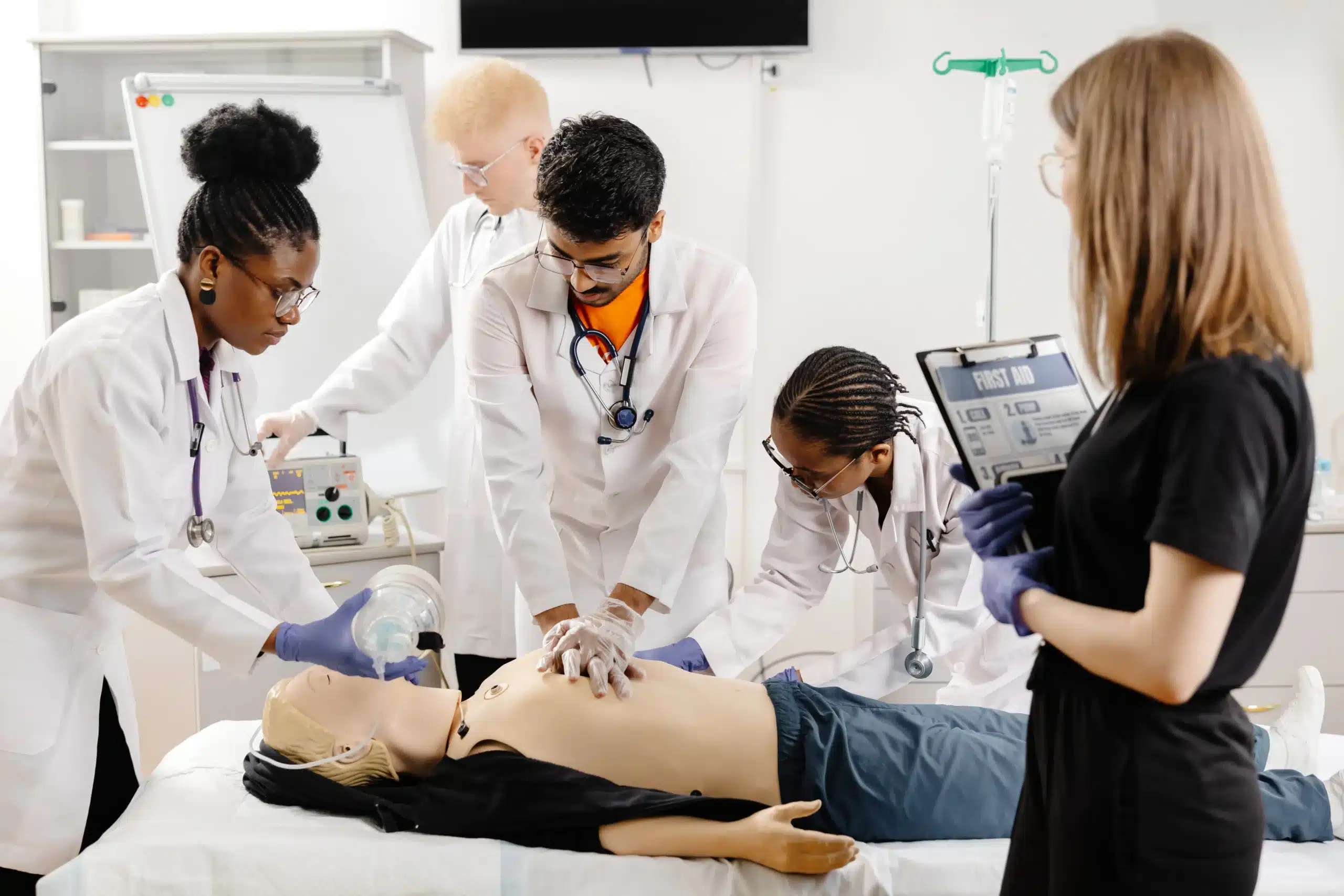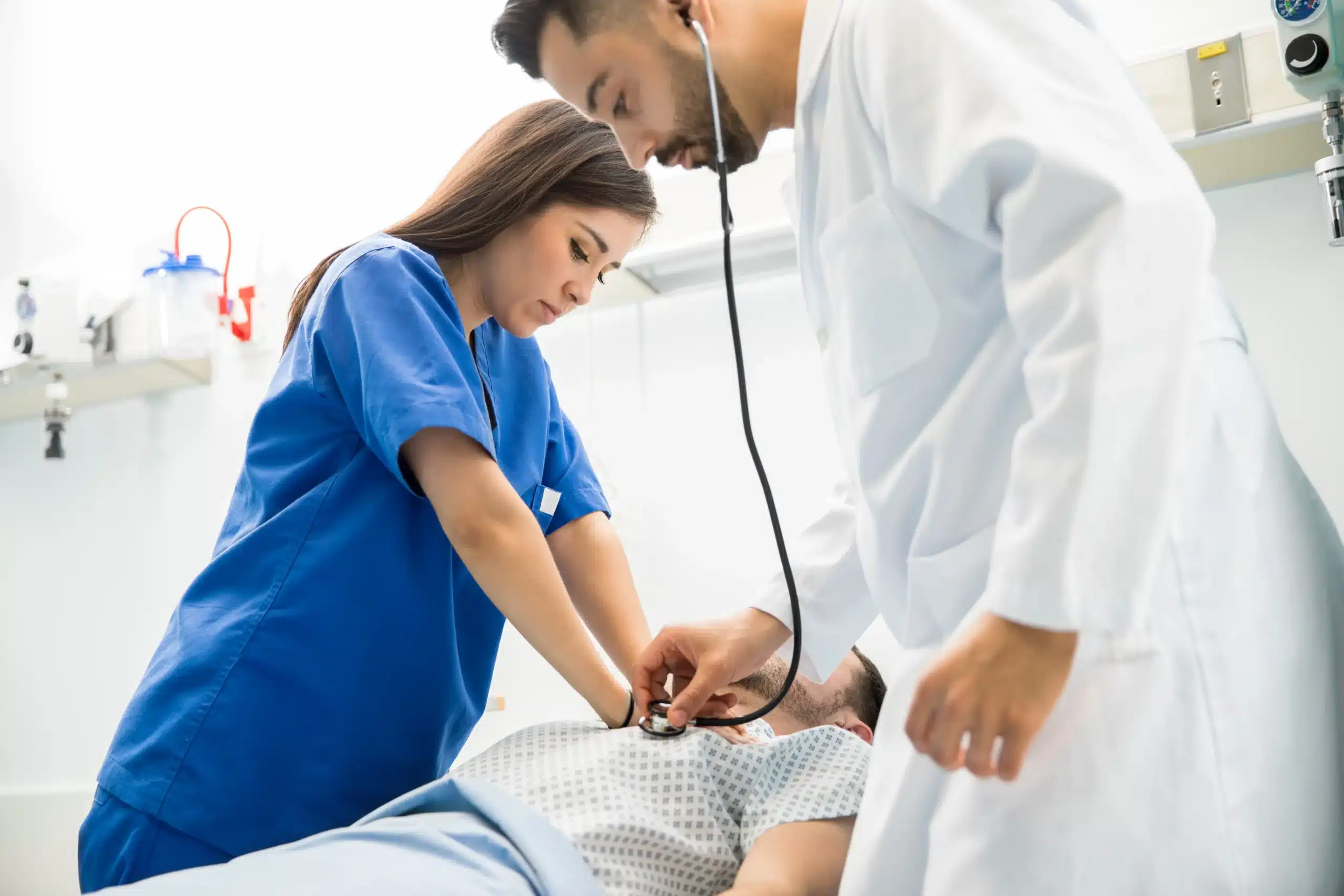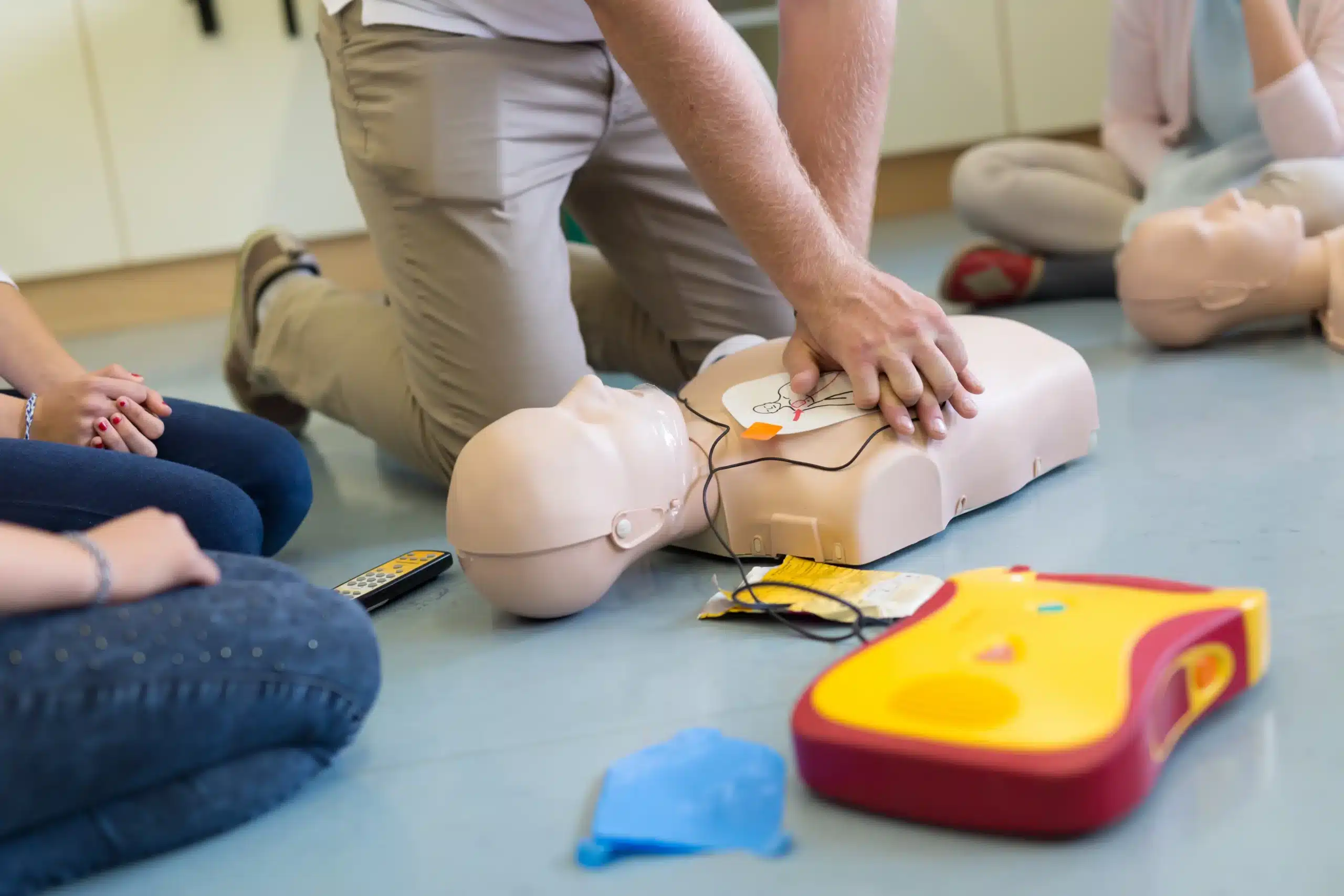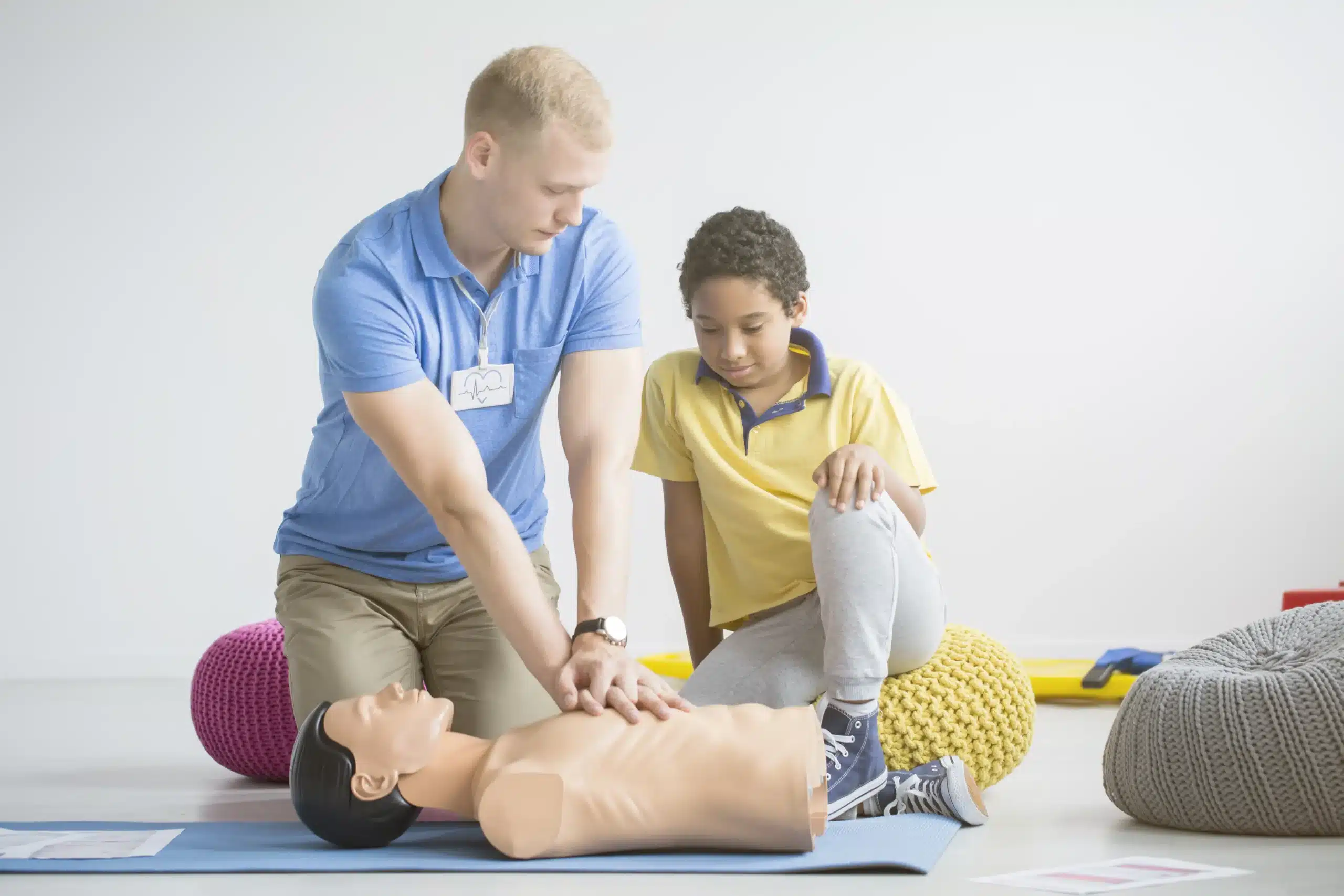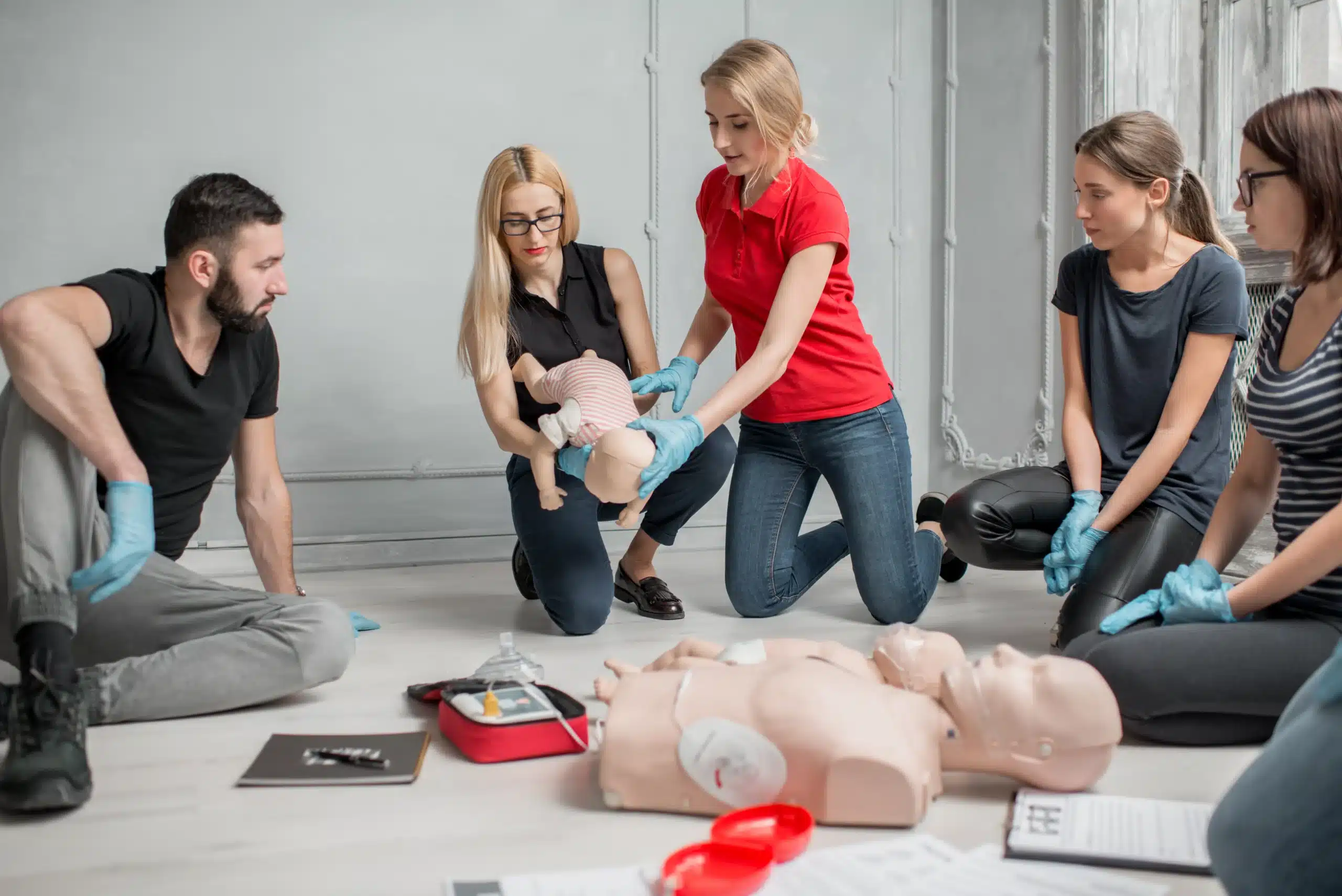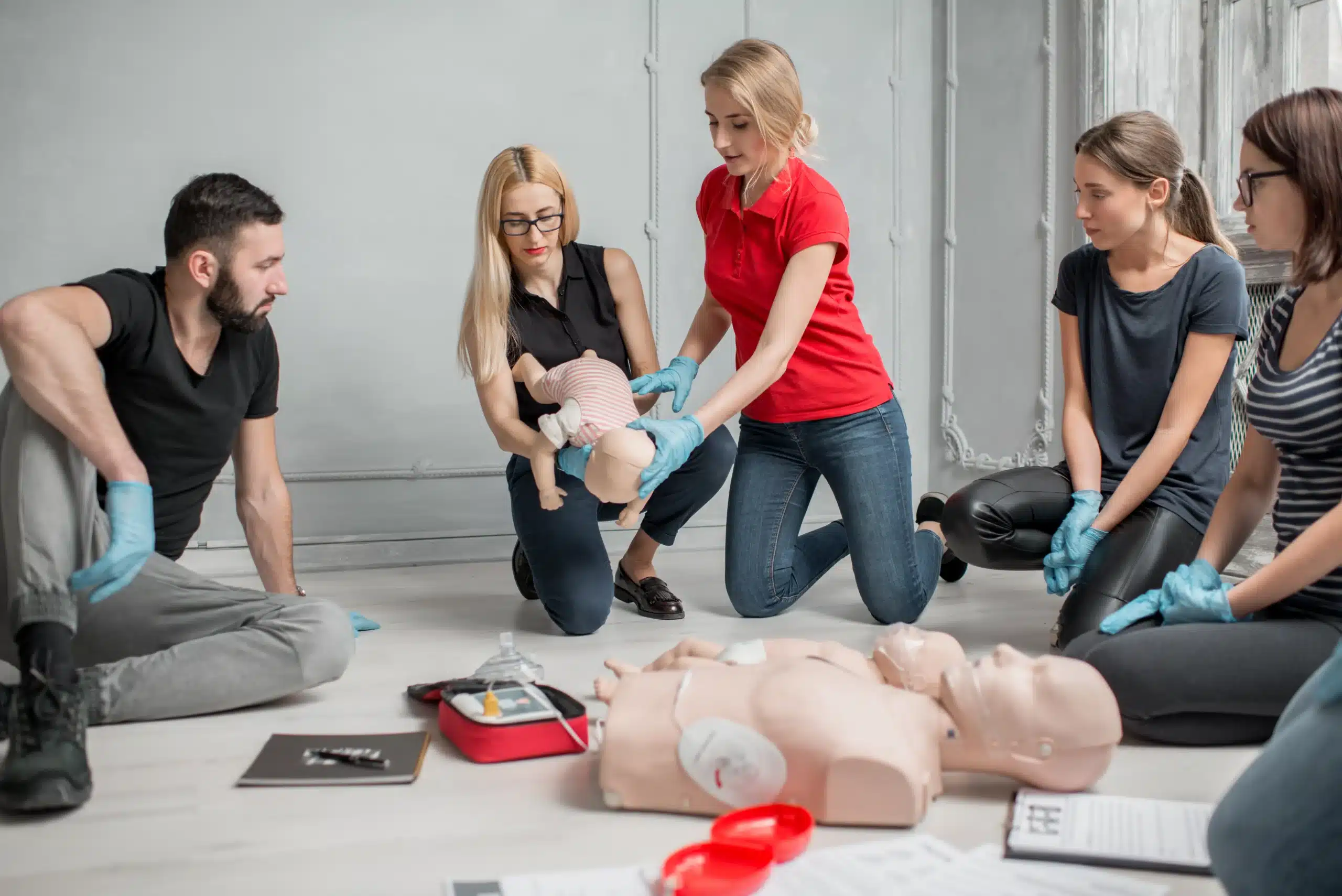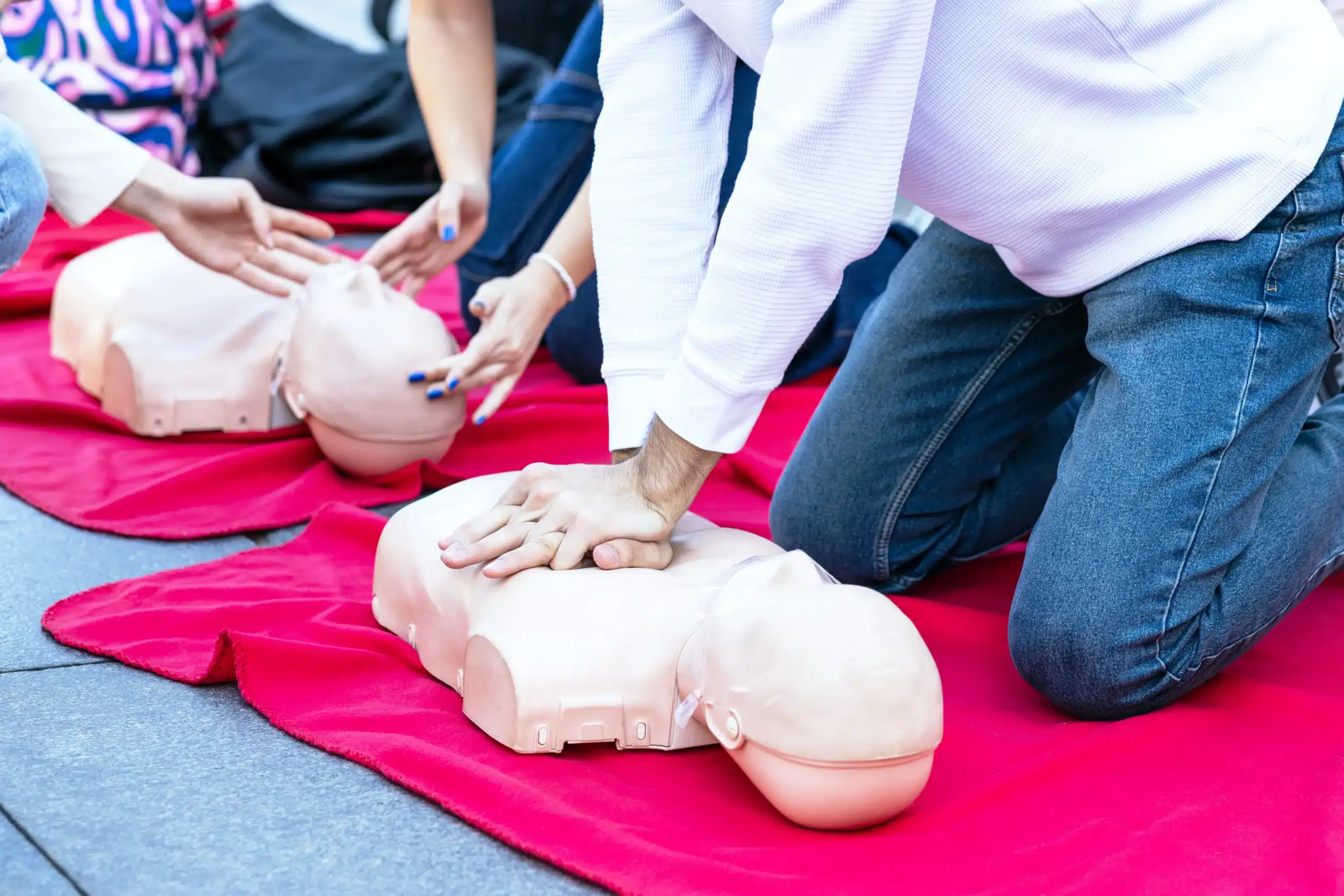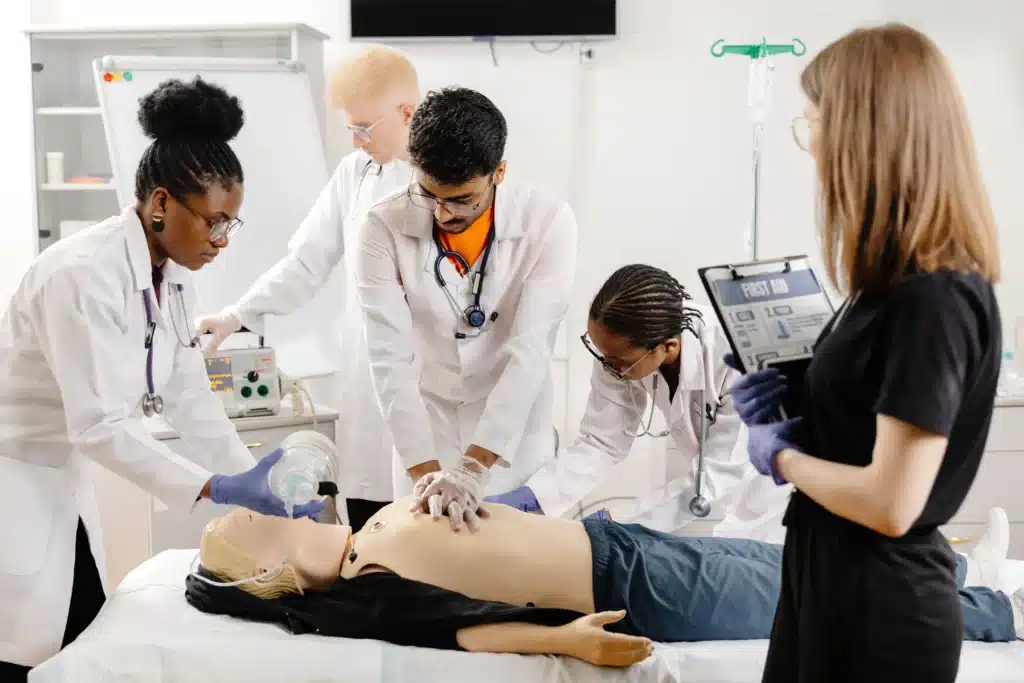Working in healthcare, you know that every second counts during a cardiovascular emergency. Having the right skills and knowledge can make all the difference in patient outcomes. That’s where Advanced Cardiac Life Support (ACLS) training comes in. This article explores everything you need to know about ACLS certification, from understanding its core components to finding the right training program in Berkeley. We’ll cover the importance of ACLS in improving patient survival rates, the key skills you’ll gain, and how to prepare for the certification process. Whether you’re a seasoned healthcare professional or just starting your career, this guide will help you find advanced cardiac life support in Berkeley and enhance your ability to provide critical care during life-threatening situations.
Key Takeaways
- ACLS builds essential skills for healthcare providers: It provides advanced training beyond basic life support, empowering you to manage complex cardiovascular emergencies and improve patient outcomes. Consider Safety Training Seminars for convenient, comprehensive courses.
- Preparation and practice are key for real-world application: ACLS involves more than just knowledge; it requires mastering teamwork, communication, and quick decision-making in high-pressure situations. Regular practice and continuing education are crucial.
- Stay current with evolving guidelines: Maintain your certification and skills by staying informed about the latest AHA updates and seeking ongoing learning opportunities. Explore local training centers and online resources to refine your expertise.
What is Advanced Cardiac Life Support (ACLS)?
Advanced Cardiovascular Life Support (ACLS) is specialized training designed to equip healthcare professionals with the skills to manage life-threatening cardiovascular emergencies. It builds upon the foundational skills learned in Basic Life Support (BLS) certification courses, focusing on advanced interventions for patients experiencing cardiac arrest, stroke, and other acute cardiovascular conditions. The goal of ACLS is to improve patient outcomes by promoting a systematic approach to resuscitation and post-resuscitation care. This includes early recognition and intervention, effective teamwork, and high-quality CPR.
What ACLS is and its purpose
ACLS is more than just a certification; it’s a comprehensive approach to patient care. It emphasizes the importance of a well-organized team response, with each member playing a crucial role in the resuscitation process. The purpose of ACLS is to provide healthcare providers with the knowledge and skills to quickly assess and manage a range of cardiovascular emergencies, ultimately increasing the chances of survival and minimizing long-term complications. While BLS provides essential basic life support techniques, ACLS training delves into advanced procedures and decision-making specifically for healthcare professionals.
Key ACLS training components
ACLS training isn’t just about memorizing facts; it’s about applying knowledge in dynamic, high-pressure situations. The training incorporates realistic scenarios and simulations, often referred to as “megacodes,” to prepare healthcare professionals for the complexities of real-world emergencies. These simulations replicate complex cardiovascular events, allowing participants to practice their skills in a safe and controlled environment. This hands-on approach helps build confidence and proficiency in performing essential interventions like airway management, rhythm recognition, and medication administration.
Critical skills you gain through ACLS
ACLS certification equips healthcare providers with a range of critical skills essential for managing cardiovascular emergencies. These skills go beyond basic CPR and include advanced techniques such as electrocardiogram (ECG) interpretation, recognizing and treating different heart rhythms, administering appropriate medications, and managing airways effectively. Mastering high-quality chest compressions, understanding the proper use of defibrillation, and recognizing reversible causes of cardiac arrest are also key components of successful ACLS intervention. Furthermore, ACLS emphasizes the importance of effective team communication and comprehensive post-resuscitation care. Unlike BLS, ACLS covers the use of advanced tools like IV medications and intubation, providing a more in-depth understanding of cardiovascular care.
Why Healthcare Professionals Need ACLS
For healthcare providers working in dynamic environments like hospitals and emergency medical services, Advanced Cardiac Life Support (ACLS) is more than just a certification—it’s a critical tool that directly impacts patient care and outcomes. Understanding its importance is key to providing the best possible care during life-threatening cardiovascular emergencies.
How ACLS impacts patient outcomes
ACLS training equips healthcare professionals with the knowledge and skills to manage cardiopulmonary arrest and other cardiovascular emergencies effectively. Studies show a direct correlation between proper ACLS implementation and improved patient survival rates, especially when treatment begins promptly. ACLS training scenarios are designed to replicate the challenges healthcare professionals face in real-life emergencies, allowing them to practice critical thinking and decision-making under pressure. This preparation leads to better outcomes for patients experiencing serious cardiovascular events. The American Heart Association (AHA) continually updates its ACLS guidelines based on the latest scientific evidence, aiming for optimal survival rates and neurological outcomes for cardiac arrest patients. This commitment to ongoing improvement ensures healthcare professionals have access to the most effective treatment strategies.
Who should get ACLS certified?
ACLS certification is crucial for any healthcare professional involved in the management of cardiovascular emergencies. This includes physicians, nurses, paramedics, respiratory therapists, and other medical personnel who may encounter these situations. Most healthcare facilities require CPR and ACLS certification as a condition of employment, recognizing the value of these skills in providing high-quality patient care. ACLS is particularly relevant to professionals working in emergency rooms, intensive care units, and other critical care settings. The training benefits a wide range of medical professionals, including emergency room physicians, anesthesiologists, critical care nurses, and paramedics.
Latest ACLS guideline updates
The AHA regularly releases updates to the ACLS guidelines to reflect advancements in medical research and best practices. Staying current with these updates is essential for healthcare professionals to maintain their competency and deliver the most effective care. The 2023 focused update includes several important changes, including revised recommendations for airway management, high-quality CPR, and appropriate medication use during cardiac arrest. One notable update addresses the use of Extracorporeal Cardiopulmonary Resuscitation (ECPR) for patients who don’t respond to standard ACLS interventions. Familiarizing yourself with the latest guidelines ensures you’re equipped with the most up-to-date knowledge and techniques to manage cardiovascular emergencies effectively.
Find ACLS Certification in Berkeley
Finding the right ACLS certification course can feel overwhelming, but several reputable providers serve the Berkeley area. Here are a few options to explore:
Safety Training Seminars
Safety Training Seminars offers ACLS certification along with other courses like BLS, PALS, and First Aid. With a long history of serving the Bay Area and numerous positive reviews, they’ve built a solid reputation. Their San Pablo location conveniently serves nearby Richmond, Berkeley, and Oakland. Check their course calendar for upcoming ACLS classes. They also offer a low price guarantee, so you can feel confident you’re getting a good value.
Berkeley CPR Classes
For a convenient option located directly in Berkeley, consider Berkeley CPR Classes. Their ACLS courses often include a blended learning format, combining online coursework with in-person skills sessions. This flexibility can be a great fit for busy professionals.
American Heart Association
While the American Heart Association (AHA) doesn’t directly offer courses, they set the standards for ACLS training. It’s important to choose a training center, like Safety Training Seminars or Berkeley CPR Classes, that provides AHA-compliant certification. This ensures your certification is widely recognized and accepted. You can review the latest AHA guidelines for Advanced Cardiovascular Life Support to understand the current standards.
Other local providers
Beyond these options, exploring other local providers is always a good idea. Searching online for “ACLS certification near me” can uncover additional training centers in the Berkeley area. Reading reviews and comparing course offerings can help you find the best fit for your needs and schedule. You can also contact Safety Training Seminars to discuss your options.
ACLS Course Structures and Formats
Understanding the various ACLS course structures and formats helps you choose the best option for your schedule and learning style. Let’s break down the key aspects:
Online vs. In-Person Training
ACLS courses blend online learning with in-person skills sessions. You’ll typically complete a self-paced online portion covering core ACLS principles and algorithms. This online component usually takes three to four hours. Afterward, you’ll schedule an in-person skills test, which takes about 40 minutes at a designated testing center. This blended approach offers flexibility while ensuring you get the hands-on practice necessary for real-world scenarios.
Duration and Time Commitment
While the online portion allows flexibility, consider the overall time commitment. The online modules for ACLS typically require three to four hours. The in-person skills test adds another 40 minutes. Berkeley CPR Classes offers classes throughout the week, from 7 am to 6 pm, providing scheduling flexibility. Factor in travel time to the testing center, too. Knowing the total time commitment upfront helps you plan accordingly.
Hands-on Practice and Simulations
The in-person skills test is crucial for ACLS certification. You’ll apply your knowledge in simulated scenarios using a voice-activated mannequin. While an instructor isn’t physically present during the test itself, support is available by phone if needed. These simulations mirror real-life emergency situations, preparing you to respond effectively under pressure. Understanding how to manage these high-stress scenarios is key to providing effective patient care, as discussed in resources like Cascade Training Solutions. This practical experience builds confidence and reinforces the skills learned online.
ACLS Course Costs and Value in Berkeley
Average certification and renewal costs
Knowing the typical costs associated with ACLS certification and renewal helps you budget effectively. Generally, initial ACLS certification costs around $169, while recertification is usually around $119. It’s also worth noting that Basic Life Support (BLS) certification, often a prerequisite for ACLS, costs about $90, with recertification around $60. So, depending on the provider and specific course features, the total cost for obtaining your ACLS certification could be around $290. For a clear comparison of ACLS and BLS certifications, check out this helpful article.
Valuable features
ACLS courses offer significant value beyond the certification itself. Most courses include a comprehensive online learning component, typically lasting three to four hours, followed by a shorter in-person skills testing session at a designated testing center. This in-person session usually takes about 40 minutes. These courses prioritize hands-on training and teamwork—essential skills for effective emergency response. The focus on practical application ensures you’re not just learning the material but also developing the skills to provide quality patient care.
Low price guarantees
Many training providers in Berkeley understand the importance of accessible training and offer low price guarantees for their ACLS courses. Safety Training Seminars, for example, is known for its commitment to affordability, providing some of the lowest-priced courses for CPR and BLS renewal. This commitment helps ensure healthcare professionals can maintain their certifications.
Prepare for ACLS Certification
Getting ready for ACLS certification involves a few key steps. Understanding these prerequisites will help you feel confident and prepared for your training. This section covers the background knowledge, recommended certifications, and helpful resources to get you started.
Required Medical Background
ACLS certification builds upon a foundation of medical knowledge. The course is designed for healthcare professionals like doctors, nurses, paramedics, and respiratory therapists who regularly encounter cardiovascular emergencies. A basic understanding of medical terminology, anatomy, and physiology is essential. You should be comfortable with advanced life support techniques and protocols before starting ACLS training. If you’re unsure whether your background is sufficient, check with your employer or a certified ACLS training center like Safety Training Seminars. Reach out to us to discuss your individual needs.
BLS Certification
While not strictly mandatory, a current Basic Life Support (BLS) certification is highly recommended. BLS provides the fundamental skills for managing respiratory and cardiac arrest, forming a solid base for the more advanced concepts covered in ACLS. A strong grasp of BLS principles will make it easier to absorb the ACLS curriculum and perform effectively in simulated emergency scenarios. You can find BLS certification courses at Safety Training Seminars.
Study Materials and Resources
Preparing for ACLS involves more than just fulfilling prerequisites. Familiarizing yourself with the course content beforehand can significantly improve your learning experience. The American Heart Association provides comprehensive study materials, including the ACLS Provider Manual. You can also find practice tests and other resources online to help you review key concepts and algorithms. ACLS training often involves simulated scenarios designed to replicate real-life emergencies. These scenarios require critical thinking and quick decision-making, so preparing in advance will boost your confidence during these exercises. Contact us at Safety Training Seminars for more information on recommended study materials.
What Happens in an ACLS Course?
This section covers what you can expect in an ACLS course, from the curriculum and assessments to how you receive your certification.
Curriculum Overview
ACLS certification is essential for healthcare providers who respond to cardiopulmonary emergencies. The course builds upon the foundation of basic CPR with a strong emphasis on teamwork and hands-on training. You’ll cover a range of topics, including recognizing and managing cardiac arrest, implementing effective resuscitation techniques, and understanding the importance of post-resuscitation care. The ACLS course combines online learning (allow approximately 3–4 hours) and in-person skills testing (about 40 minutes at a designated testing site).
Assessment Methods
The in-person skills test involves a voice-activated mannequin. While an instructor won’t be physically present during your test, support is available by phone if needed. Reviewing the online videos beforehand significantly increases your chances of success. Think of it as a dress rehearsal before the main performance. CPR Certification Classes often recommend reviewing these materials.
Certification Process and Validity
Upon successful completion of both the online portion and the skills test, you’ll receive your American Heart Association (AHA) ACLS certification card, valid for two years. Maintaining a current ACLS certification is often a requirement for many healthcare roles, so staying up-to-date is crucial for your career. AHA certification cards are provided upon completion.
Applying ACLS in Real-Life Situations: Challenges
While ACLS training gives you the knowledge and skills to handle cardiovascular emergencies, real-world scenarios present unique difficulties. These challenges go beyond simply knowing the algorithms and touch on the human element of critical care.
Managing High-Stress Environments
Picture a chaotic emergency room: alarms are going off, and a patient is in critical condition. These high-stress environments can test even the most experienced healthcare professional. ACLS training uses realistic scenarios to help you develop coping mechanisms for the emotional and mental pressures of these situations. Simulations often recreate the chaos and challenges of actual emergencies, pushing participants to perform under pressure. This practice builds resilience and prepares you to manage the stress of real emergencies.
Communicating Effectively in a Team
During a cardiac arrest, clear, concise communication is essential. Every team member needs to understand their role and perform it efficiently. ACLS emphasizes the importance of teamwork and communication through simulations. These exercises provide opportunities to practice giving and receiving orders, share critical information, and coordinate efforts seamlessly. Effective communication minimizes errors, streamlines resuscitation, and ultimately improves patient outcomes. Practicing these skills in a simulated setting translates to better performance in real emergencies.
Making Quick Decisions Under Pressure
In critical situations, seconds count. ACLS requires healthcare providers to assess patients quickly, interpret complex information, and make life-saving decisions under immense pressure. ACLS Mega Codes, advanced simulations, are especially helpful in developing this rapid decision-making ability. These simulations present complex scenarios that demand quick thinking and decisive action, improving your ability to prioritize interventions and adapt to changing circumstances. This practice builds confidence and prepares you to make informed decisions even in the most difficult situations.
Maintain Your ACLS Certification
Once you’ve earned your ACLS certification, staying current is key. This ensures you’re prepared to handle any cardiovascular emergency with the most up-to-date knowledge and techniques.
Renewal Requirements and Process
ACLS certification is valid for two years. To maintain your credentials, you’ll need to complete a renewal course before your certification expires. This refresher course covers the latest guidelines and reinforces essential skills. Don’t let your certification lapse—stay proactive and schedule your renewal in advance. This ensures you’re always ready to provide the best possible care. Medtigo addresses common misconceptions about ACLS, offering valuable insights into the importance of timely renewal.
Continuing Education Opportunities
Beyond your required renewal, consider expanding your skillset with additional courses. Think about adding BLS or PALS certification to your repertoire, or explore specialized ACLS workshops. These opportunities offer in-depth training on specific procedures or scenarios, further enhancing your expertise and keeping you at the forefront of advanced cardiovascular care. For example, Cascade Training discusses how simulated scenarios can significantly improve real-life performance.
Stay Updated with Evolving Guidelines
Medical knowledge is constantly evolving. The American Heart Association (AHA) regularly updates its ACLS guidelines to reflect the latest research and best practices. Staying informed about these updates is crucial for providing effective care. Master ACLS offers summaries of the AHA guidelines, making it easier to stay current. Vitali Partners provides a helpful overview of recent updates, including new recommendations for procedures like extracorporeal cardiopulmonary resuscitation (ECPR). By staying informed, you can ensure your practice aligns with the most current standards of care.
Enhance Your ACLS Skills: Resources in Berkeley
Improving your Advanced Cardiovascular Life Support (ACLS) skills is an ongoing journey. Fortunately, Berkeley and the surrounding areas offer numerous resources for healthcare providers looking to refine their expertise. Whether you prefer hands-on training, online refreshers, or advanced simulations, you’ll find opportunities to maintain your confidence and proficiency in ACLS.
Local Training Centers
For those who learn best in a classroom environment, several local training centers offer comprehensive ACLS courses. Safety Training Seminars, known for its American Heart Association-certified courses, provides instruction in over 60 Northern California cities, including convenient locations for Berkeley residents. They’ve built a strong reputation, with a 4.9-star rating and over 2,000 reviews on Birdeye. Their San Pablo location, serving Richmond, Berkeley, and Oakland, offers a variety of courses, including BLS, ACLS, and PALS. You can also find classes in nearby Livermore, as described on their Yelp page. Visit their websites for schedules and registration details.
Online Learning Platforms
Online learning platforms offer flexibility and convenience for busy professionals. The American Heart Association (AHA) provides helpful resources, including the “2023 ACLS Focused Update: Implications for Training ACLS Providers,” available through Vitali Partners, discussing the latest AHA updates. This document helps you stay current with the latest ACLS guidelines and best practices. Many online platforms also incorporate realistic simulations, allowing you to practice managing various emergency scenarios and improve your decision-making, as explained by Cascade Training Solutions.
Professional Development Workshops
To truly excel in ACLS, consider attending professional development workshops. These workshops often use simulated scenarios, recreating the complexities of real-life emergencies. Cascade Training Solutions explains how these simulations are essential for developing critical thinking and making quick decisions under pressure. “ACLS Mega Codes,” also covered by Cascade, offer immersive experiences that simulate complex cardiovascular emergencies, providing valuable practice for honing your skills and teamwork in a safe environment. These workshops can significantly improve your ability to apply ACLS knowledge effectively in real-world situations.
Related Articles
- ACLS Renewal in Oakland: Costs & Providers – San Pablo CPR Classes
- AHA ACLS Classes in San Pablo, CA – San Pablo CPR Classes
- CPR Certification in San Pablo: Your Comprehensive Guide – San Pablo CPR Classes
- BLS for Healthcare Providers in Berkeley: A Complete Guide – San Pablo CPR Classes
- BLS Certification in Berkeley: Your Complete Guide – San Pablo CPR Classes
Frequently Asked Questions
How does ACLS differ from BLS?
ACLS builds upon the foundational skills of BLS. Think of BLS as the first step, providing essential life support techniques like CPR. ACLS goes further, equipping healthcare professionals with advanced knowledge and skills to manage complex cardiovascular emergencies, including specific heart rhythms, medication administration, and advanced airway management. It’s a more specialized approach to resuscitation and post-resuscitation care.
What does an ACLS course typically involve?
Most ACLS courses use a blended learning format. You’ll complete online modules at your own pace, covering the core principles and algorithms. Then, you’ll participate in an in-person skills test, applying your knowledge in simulated scenarios. This hands-on component is crucial for building confidence and proficiency in performing essential interventions.
How much does ACLS certification cost, and how long is it valid?
The cost of ACLS certification varies but typically falls between $160 and $180. Recertification is usually less expensive. Your ACLS certification will be valid for two years. Remember that many providers offer low price guarantees, so it’s worth comparing options.
Who should consider getting ACLS certified?
ACLS certification is essential for healthcare professionals who may encounter cardiovascular emergencies. This includes physicians, nurses, paramedics, respiratory therapists, and other medical personnel working in settings like emergency rooms, intensive care units, and ambulances. Even if your workplace doesn’t require it, ACLS certification demonstrates a commitment to providing high-quality patient care.
How can I prepare for my ACLS course?
While a specific medical background isn’t strictly required, a current BLS certification is highly recommended. Familiarize yourself with the course content beforehand using resources like the ACLS Provider Manual. Practice tests and online resources can also help you review key concepts and algorithms. Most importantly, be prepared for the hands-on skills test, where you’ll apply your knowledge in simulated emergency scenarios.
